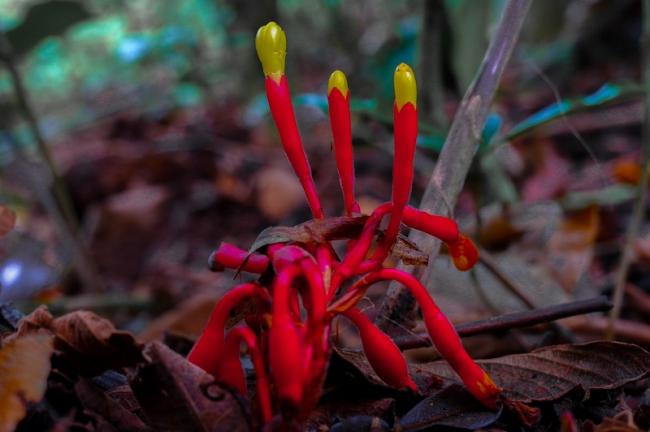by ALEX DIAMOND

Kristina Lyons’ new book documents soil and farming in the Colombian Amazon. It is a powerful critique of capitalist agriculture and a rich account of alternative practices.
The ongoing peace process in Colombia has motivated a surge in scholarly and popular interest, particularly focused on the rural areas that have long constituted the frontlines of the country’s civil war. Kristina Lyons’ new book, Vital Decomposition (Duke University Press), offers a worthy contribution to this trend, albeit one with an unorthodox protagonist: the soil and different groups of people who intimately work with it in the Amazonian department of Putumayo.
Lyons first arrived in the region in 2007 as part of a Witness for Peace delegation focused on U.S. anti-drug policy and its relationship with the Colombian conflict. But she writes that her relationships with campesino and Indigenous communities pushed her to focus not on violence and death, but on the life-making cultivation processes that begin with the decomposing upper layers of soil. Lyons’ background as activist, community ally, and trained anthropologist shines through in her writing, as she artfully weaves together political arguments, evocative descriptions of her subjects’ daily lives, and social theory. This perspective allows her to draw new insights that pose challenges to dominant understandings of rural Colombian development, conflict, and politics.
Colombia’s armed conflict and the associated challenges of bringing it to an end are most often understood in terms of two related dichotomies: formal state versus armed group control, and legal versus illegal economic activity. In this understanding, Colombia’s problems spring largely from lawless frontier areas where armed groups and illicit economies like illegal mining and drug production and trafficking reign. These paradigms understand the entrance of the state and legal economies as both the solution to conflict and the factors that we should use to evaluate rural Colombia’s post-peace agreement transition, with a particular emphasis on eliminating the illicit coca economy that has long funded armed groups.
NACLA for more
